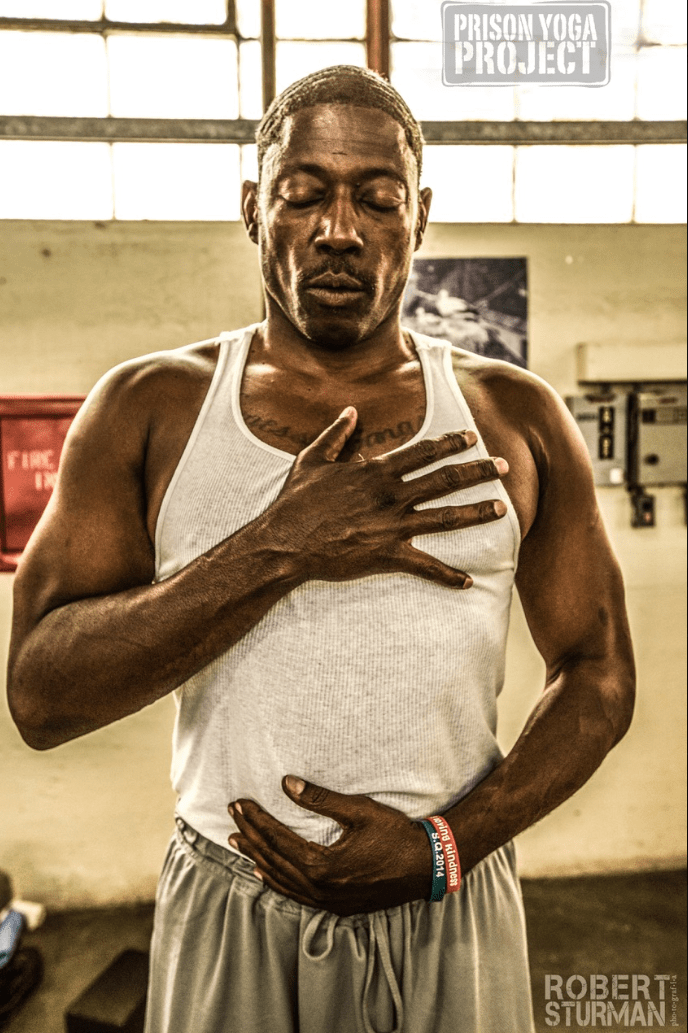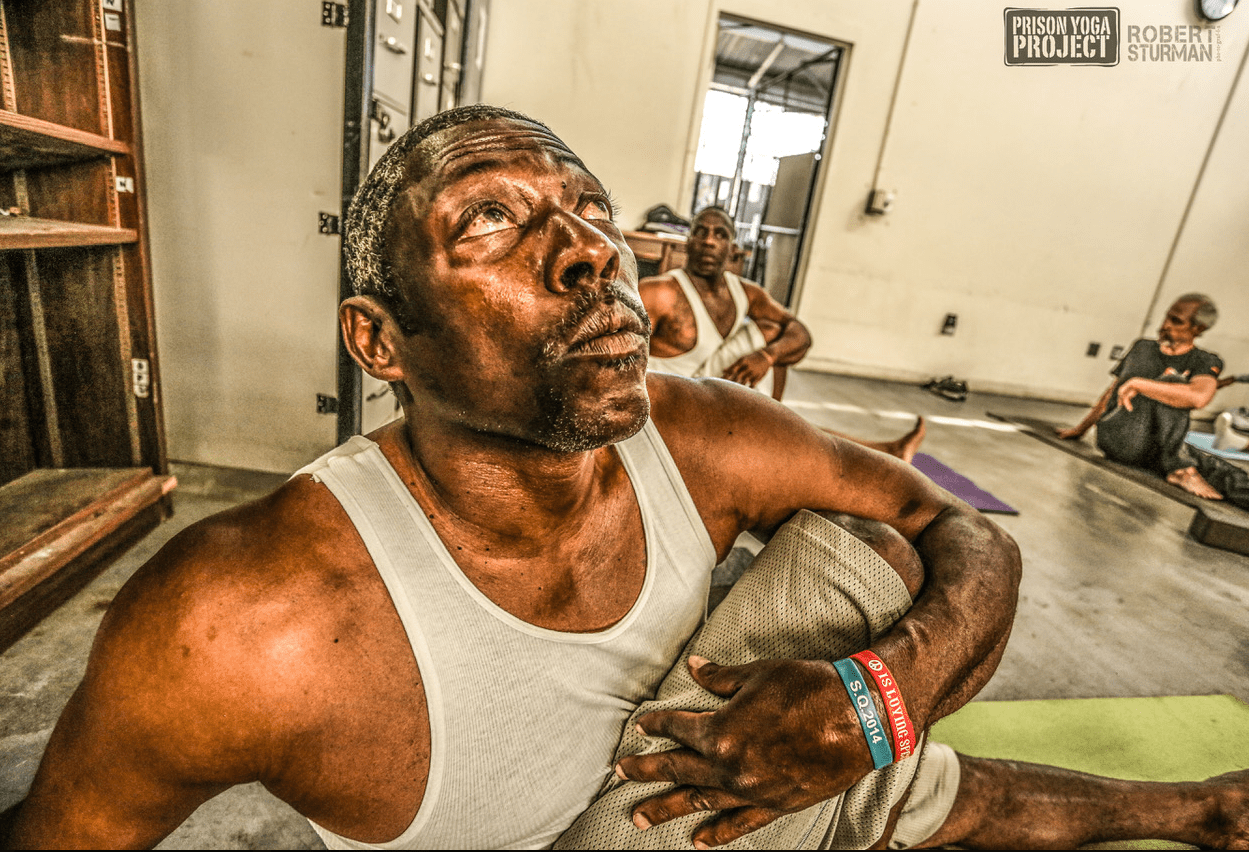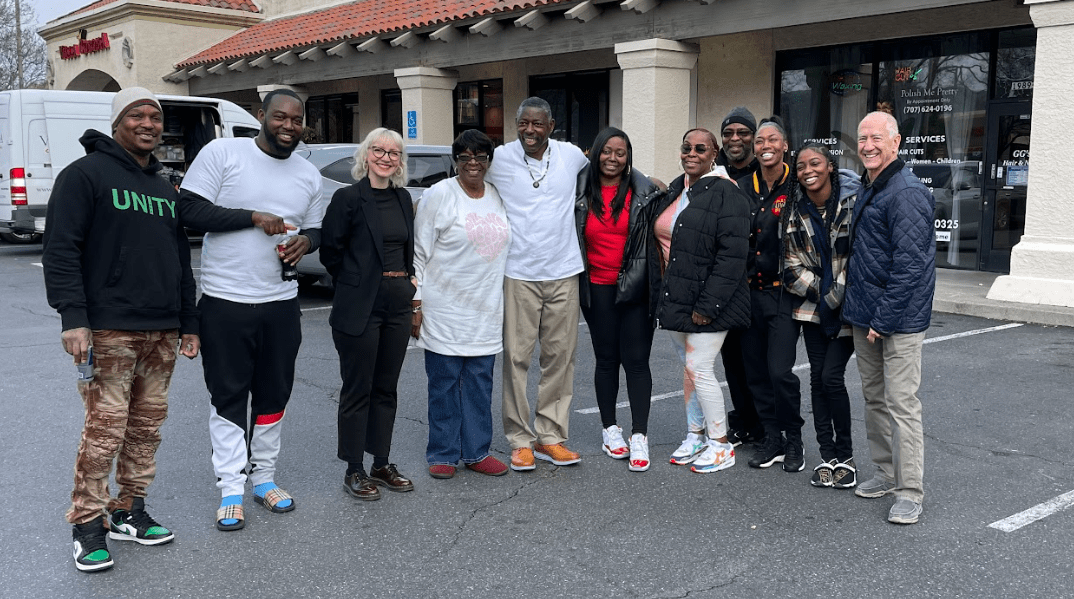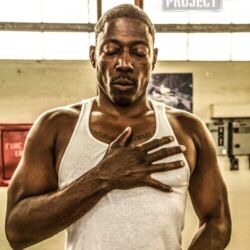

Diane: How were you feeling when you first found out you were going to get released?
Darnell: When I went to the board and was found suitable, I was like… wow. I did it! I went in there with no expectations. I walked in as if I was going to have a conversation about who I was and who I am now. I wasn’t worried about what they thought of me because I know who I am, and that was the bottom line. I think sometimes people go into the board thinking of it as an adverse situation. They have their guard set with an attitude and facial expressions, voice or body language. I decided to let that go and go in with an open mind.
Diane: What was your reaction when they said you were found suitable?
Darnell: There was an emptiness… there was no pressure. I just marinated in what was said. When the committee told me, “Do what you said you’re going to do when you get out. Don’t disappoint us,” about what I said I want to do in my community, that hit me. That’s something I really remember that motivated me to stay on the right path.
Diane: What happened next?
Darnell: I went back to the yard. Everyone knew I went to the board and they kept telling me I would get a date. All my friends were there and they were clowning me, like, “I know you got the date.” I asked why, and they said, “We see you walking down the road looking like George Jefferson!” They were proud of me. They had so much confidence in me that I was going to get the date. That’s something I had to work on to understand. They saw the change in me, and I just hope they do the same thing. They kept asking me a lot of questions about what I did and I said, “I don’t have the answers. Only you know what you’ve been through and what you’ve got to do when you go in there. I’m not going to tell you. I can tell you what I said, but I have no answers. That’s the most important thing. They were like, “Okay,” and next thing you know, everyone was asking the things in my cell, my stuff.
Diane: How did you feel the night before you were going to be released?
Darnell: I was really calm. I went to sleep at a normal time. I did everything I normally do: my little prayer and meditation. I’m a practicing Buddhist, and it’s about being in the present moment. I wasn’t trying to look to the future or think about what I missed. I wanted to enjoy this moment right now and have the rest of my mind clear. The next morning when I woke up to go home, that was a great feeling, but also a sad feeling because I knew I was leaving a lot of friends behind that should be out as well. It was bittersweet. Once I got released and they drove me to where I was going, my mom and my children were there, and that was emotional. There was crying and tears. It took me a while. I’m still getting used to the fact that this is really true and I’m home after 26 years.
Diane: Tell me about the reunion with your family.
Darnell: As soon as I got out of the car, my kids came running up and hugged me. My older brother was there, my cousins, friends… I said, “Where’s mom?” They said she drove the wrong way. Before she got there, we had to leave the premises so we went up the street. My mom and my sister came, and there was a lot of hugging and crying. We have a video of us holding each other. It was really a blessing. I went to the board on the 4th, and my mom turned 75 on the 9th. I’m a momma’s boy, so that was really special.
Diane: What did you do next?
Darnell: We went to eat at House of Pancakes. That was nice. My first meal was fried chicken and waffles. Then, they took me shopping and I bought some clothes, before we went to the AirBnb. We were driving and all of the sudden, I told my friend to pull over because I had to throw up. It came from motion sickness because I hadn’t been in a car in so long. The rest of that week I was really nauseated every time I was in the car. I’m used to it now because I’ve been in the car a lot.
The day after I got out, I was sitting in my room, and I just broke down because of all the emotions from being out, all the love and support I received… I let it all out. I called my mom and talked to her and my kids about it. That’s basically what we prepare for when we get out in our prevention plan. I did exactly what I was supposed to do: call and talk to people about what I’m feeling and going through. Pre-release plans do come in handy so you don’t resort to drinking or whatever your vices were.
Diane: What do you remember about your first night being free?
Darnell: It was cool, being underneath my mom, with her and watching TV with her, being with my kids and hearing them say, “Dad this” and “Dad, that,” and taking pictures with them. My grandma and my grandsons were there. There were people coming by. My son got me a cellphone, and people kept trying to call. The phone kept ringing, and I had to throw the phone to the side. It was too overwhelming. I think that’s something we have to be careful with, coming home and being overwhelmed. I just had to be with my immediate family.
Diane: Where are you staying now?
Darnell: I’ve been at the transition house. It’s nice, a four-bedroom, three-bathroom house. Living room, dining room. There’s eight of us here; most of them work. We have a beautiful backyard with a waterfall. It’s like a zen backyard. I can go back there and look at the Koi fish in the pond and relax.
Diane: How long do you stay there?
Darnell: I have to be there for six months. After that, I can get my own place. I plan on going back to LA no later than a year.
Diane: What are your days like?
Darnell: I don’t work yet. In the mornings, I work out in the backyard like I did in prison. After that, I sit and meditate. Then people come by and take me out to eat or to events. I’m building relationships with people and networking for my non-profit.
Diane: Have you been able to get your birth certificate, driver’s license and social security number?
Darnell: In prison somebody told me I could get my birth certificate right then, so I filled out the form and paid the notary $20 at the prison. They sent it to my mom, and she told me that they found my social security card in my grandmother’s Bible. Then I had to get my California ID. I signed up for that, it’s been over a month and a half and I haven’t received it. I went to the DMV and told them what happened. I had to fill out the form again, and they didn’t charge me. I went to one booth, and they told me to wait in line until they called my number. Then I went up, and the guy told me to do the exact same thing again. I’m like, “I just did this!” So I had patience, and did it again. They said I would get it in two to three weeks. I had a hold on getting my driver’s license, because it was suspended for something from years ago. I was waiting to get a hearing which wasn’t until June. I stayed consistent and kept calling, and they moved it up to last week. They took the hold off, and I should get the paperwork and be able to go get my driver’s license.
Diane: Are you ready?
Darnell: Yeah, having people take me places is getting me used to the traffic. Looking over my shoulder, even though I’m the passenger, is really preparing me to drive.
Diane: Where did you parole to?
Darnell: Castro Valley. All my family is in LA. I stayed up here and I’m going to ease my way back into LA. I’m like the pillar of my family and I don’t want to be overwhelmed. I’ve been networking with people like my big brother. I’m getting my non-profit started, so that paperwork is in process.
Diane: What is your non-profit about?
Darnell: I want to start my non-profit called, African American Community Healing. I would be able to fund summer camps for kids in the community, bring yoga, art and mindful meditation to them and mental health classes. There’s a great park in our community I’d like to remodel. On a day that we have mindfulness, people could go see a psychiatrist or mental health specialist then. They would be more likely to go being in the community so it’s more convenient to them. I know people who would go which would lead to other people going, as well. That’s something we really need in our community. Our communities have a lot of healing to do. I thought about this alot, I’ve had to deal with it myself. For example, when I wrote that piece for you at Humans of San Quentin, I got a lot of positive responses from that. That reflection is exactly what we need in our communities and the issues I feel are happening everyday in our communities.
Diane: Are you still doing yoga?
Darnell: Yes, four times a week, I do my strenuous workout, then my situps, then I close out with yoga. Then I listen to my Thich Nhat Hanh bell chant. That’s how I wind all the way down.
Diane: What are you looking forward to?
Darnell: Building my community up, building my relationships and bringing a change to our community, bringing unity, peace and harmony with our different communities.








wow!! You are amazing!!! You have
studied hard to get to this point in
your life… I wish the best of luck in your endevures and much success
to you. You seem to be a kind loving
soul. Good luck. Many hoorays andfor your new life bring lots of love, we all need that. happiness, joy and peace .
I was happy to read your post❤️